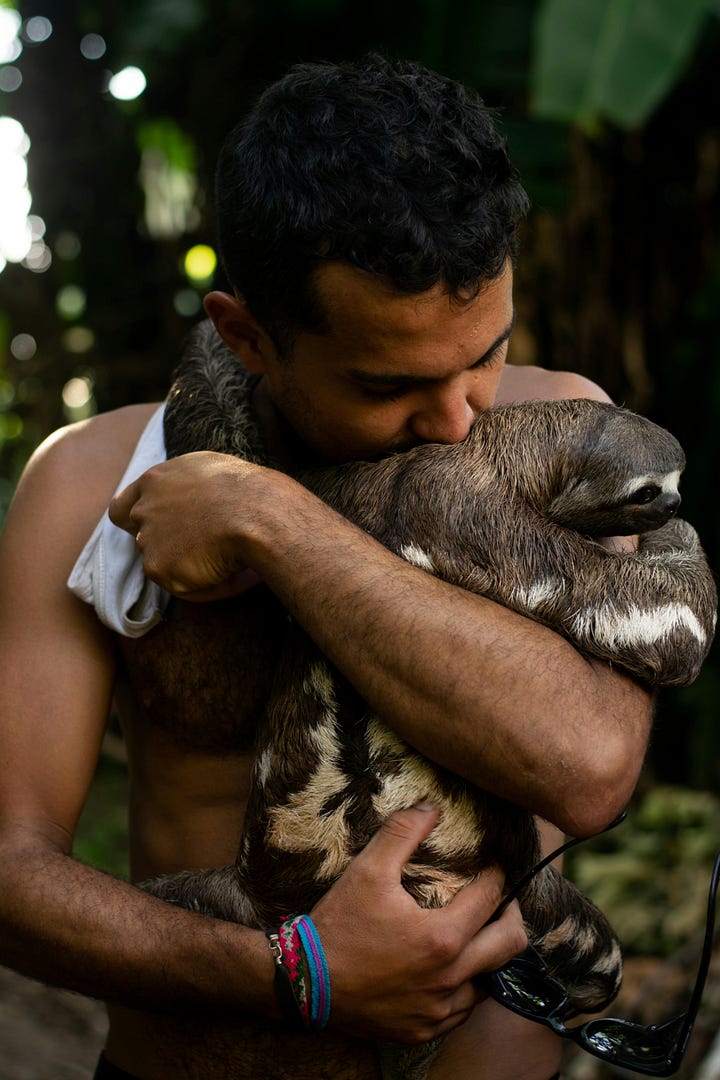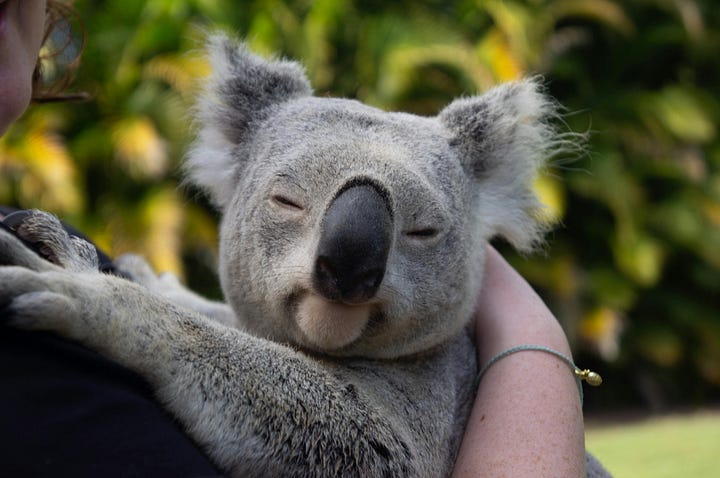The Dark Side of Animal Tourism: Sloth Hugs and Koala Cuddles Under Ethical Fire
As Wildlife Attractions Face Ethical Backlash, the Debate Over Compassionate Conservation Takes Center Stage
In recent days, two stories emerged that highlight the growing ethical concerns surrounding animal tourism. The New York Times reported on the trend of tourists paying to hug sloths at SeaQuest, an interactive aquarium and animal park with multiple locations across the United States, while The Washington Post covered the decision by the Lone Pine Koala Sanctuary in Brisbane, Australia, to end its koala cuddling sessions.
These stories, though focused on different animals and locations, converge on a critical issue: the welfare of animals in tourism and the ethical implications of human-animal interactions. This juxtaposition underscores the urgent need for a reevaluation of how wildlife is used in tourism.
The Sloth Hugging Controversy
SeaQuest's sloth hugging experiences have become a popular attraction, drawing visitors eager for a close encounter with these slow-moving creatures. However, animal welfare advocates argue that such interactions are stressful and harmful to the sloths. The physical handling and constant human contact can lead to significant stress, which can adversely affect their health and well-being. Critics contend that the commercialization of these experiences prioritizes profit over the animals' welfare, raising serious ethical questions about the exploitation of wildlife for entertainment.
Sloths, known for their slow movements and solitary nature, are particularly vulnerable to the stresses of human interaction. Scientific research has shown that sloths experience abnormal blood pressure reactions and increased heart rates when in contact with humans, indicating significant stress. This stress can lead to a compromised immune system, making them more susceptible to diseases and infections. Additionally, sloths have a symbiotic relationship with algae that live in their fur, which can be disrupted by human touch, further affecting their health.
Captive sloths often face poor living conditions, especially in facilities that prioritize profit over animal welfare. These conditions can lead to behavioral changes, such as increased aggression or erratic behavior, which are signs of severe stress. Furthermore, many sloths in captivity are taken from the wild, and the trauma of being separated from their natural habitat and social structures can be detrimental to their mental and physical health.


Koala Cuddling: A Shift Towards Compassionate Conservation
In contrast, the Lone Pine Koala Sanctuary has taken a different approach. Responding to feedback and growing concerns about the impact of cuddling on koalas, the sanctuary has ceased offering these sessions. Instead, they now focus on educational and immersive experiences that allow visitors to learn about koalas' behaviors and habitats without direct physical interaction. This shift reflects a broader movement towards compassionate conservation, which emphasizes the well-being of animals and the importance of preserving their natural behaviors and environments.
Koalas, like sloths, are also adversely affected by human contact. The Lone Pine Koala Sanctuary's decision to end koala cuddling sessions was influenced by concerns about the welfare of the animals. Koalas are naturally solitary and territorial animals, and frequent handling by humans can cause significant stress and anxiety. This stress can lead to health issues such as weakened immune systems and increased susceptibility to diseases.
Moreover, koalas have sensitive skin and are prone to infections and diseases when exposed to human bacteria. The physical act of cuddling can also disrupt their natural behaviors and routines, leading to long-term psychological and physical harm. The sanctuary's shift towards more educational and immersive experiences aims to reduce these negative impacts and promote a more compassionate approach to wildlife tourism.
The Broader Implications
The juxtaposition of these two stories underscores a significant trend in animal tourism. As public awareness of animal welfare issues grows, there is increasing scrutiny of practices that involve close human-animal interactions. The debate centers on the balance between providing educational and enriching experiences for visitors and ensuring the welfare of the animals involved.
From a compassionate conservation perspective, these stories highlight the need for a reevaluation of how wildlife is used in tourism. Compassionate conservation advocates argue that true respect for animals involves minimizing human interference and allowing them to live as naturally as possible. This approach not only benefits the animals but also fosters a deeper appreciation and understanding of wildlife among the public.
There is increasing pressure on wildlife attractions to adopt more ethical practices. The stories of sloth hugging at SeaQuest and the end of koala cuddling at Lone Pine Koala Sanctuary serve as reminders that our interactions with wildlife must be guided by a commitment to compassion and respect. By promoting responsible and ethical tourism, we can help protect these vulnerable species and ensure their survival for future generations.
Moving Forward
The decisions made by SeaQuest and Lone Pine Koala Sanctuary represent two different responses to the same ethical dilemma. While SeaQuest continues to offer sloth hugging experiences, the backlash from animal welfare groups suggests that such practices may not be sustainable in the long term. On the other hand, Lone Pine's decision to end koala cuddling and focus on educational experiences may serve as a model for other wildlife attractions.
As the debate over animal tourism continues, it is clear that the industry must adapt to changing public attitudes and ethical standards. By prioritizing the welfare of animals and promoting compassionate conservation, wildlife attractions can provide meaningful and responsible experiences that benefit both animals and visitors.
Conclusion
The stories of sloth hugging at SeaQuest and the end of koala cuddling at Lone Pine Koala Sanctuary highlight the evolving landscape of animal tourism. These cases underscore the urgent need for a shift towards more ethical practices that prioritize animal welfare. By embracing compassionate conservation and promoting responsible tourism, we can ensure that our interactions with wildlife are guided by respect and empathy.
This approach not only protects vulnerable species but also enriches our understanding and appreciation of the natural world. It is imperative that we advocate for and support ethical tourism practices to safeguard the well-being of animals and preserve their habitats for future generations.
Additional Reading:
Ed Boks is a former Executive Director of the New York City, Los Angeles, and Maricopa County Animal Care & Control Departments. He is available for consultations. His work has been published in the LA Times, New York Times, Newsweek, Real Clear Policy, Sentient Media, and now on Animal Politics with Ed Boks.





I feel bad for participating in the Beluga Encounter at Shedd Aquarium years ago.
Good for Lone Pines and their decision. 👍